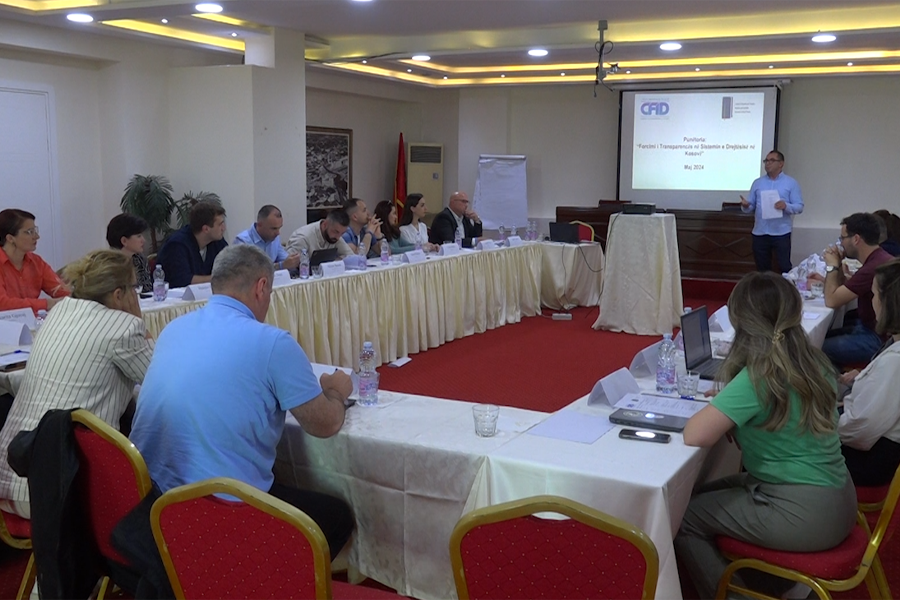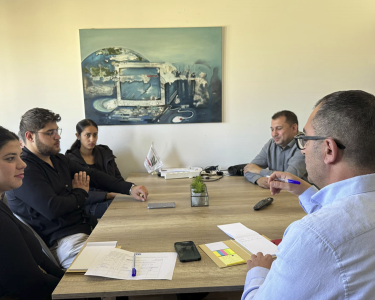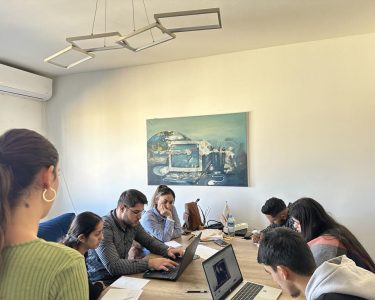About 30 information officers from the prosecutorial and judicial system in Kosovo were trained for transparency in justice. For two consecutive days, they were part of the workshop “Strengthening transparency in the justice system in Kosovo”, organized by the Center for Innovations and Development (CFID). The purpose of this workshop was to improve and increase transparency in the justice system in relation to the media and the public. The participants were information officials from the Kosovo Prosecutorial Council, all basic prosecutions, as well as the Kosovo Judicial Council and the courts in the country.
The publication of unconfirmed news is causing great harm to the victims and the investigation process itself, it was said in this workshop held in three separate sessions.
The head of the information office at the Supreme Court, Antigona Uka-Lutfiu, considered that the publication of news without the confirmation of the spokespersons of the courts is the fundamental mistake.
“We have a large number of news portals that do more copy-paste journalism and that do not know the laws well and do not know the harm they can cause to the public or in the investigation of cases. And in this aspect, I think that there is an urgent need to regulate this area because there are cases where the investigations were damaged, when great harm was caused to the victims. The idea of publishing a news story without confirmation from competent persons, in this case from court spokespersons, is the fundamental mistake made in broadcasting news to the public,” she added.
In the two-day workshop, the need for a greater number of staff in the field of communication was also emphasized.
“We continue to be one person in the offices for information, which presents a special challenge in the opportunity to transmit as much information as possible, to inform the public as much as possible about developments in the judiciary, about judgments, so this is the main current challenge “Otherwise, transparency is increasing from year to year. A very large number of judgments are published every day. If I am not mistaken, we now have over 150,000 judgments published on the website.”
The challenges in achieving the levels of communication were also mentioned by the person responsible for public communication in the Kosovo Prosecutorial Council, Bedri Gashi.
“We are lawyers of our institution, we advocate for the jobs, activities and tasks that we have competence in, in the tasks described to us and at the same time we constantly try to increase the level of cooperation with the media, civil society and others, parties who are interested in cooperating with us. We carry out a double mission as a community, because we also advocate for the media within the institution, so it is a double mission, which we discussed today in the sessions of the workshop day. With the new Salary Law but also with the internal regulations of the prosecutorial system, we think that the reward for their work should be achieved because I think that in order to create a public communication officer with his experience and with all his reach in the public, a period of time must pass, and public communication officers are not easily created, they must be preserved in the system”, he emphasized.
The project manager, Fadil Miftari, said that this workshop was aimed at improving and increasing the transparency of the justice system in relation to the media and the public.
“The main objective of the workshop or its main goal is to open a kind of debate within this activity and see how transparency in the justice system of Kosovo can be improved and strengthened. Our project provides support and promotes transparency in all public institutions, but this activity is focused or personalized only for these two mechanisms, the prosecutorial system and the judicial system. In fact, as you can see here, there is a considerable number, mainly officials, who lead and work in the information office”, he declared.
In the sessions of this workshop, Fadil Miftari added that they aim to discuss whether these two mechanisms of justice are ready to approach the public in the digital age.
“Both of these mechanisms have not started any initiative to use digital forms of promotion or increasing transparency towards the public. They each communicate, each has their own websites, but it is still in the stage of traditional communication. However, as we know, today we have a wide range of new forms of communication that are faster and create much closer contact directly with the public, without someone in between… Here it was observed that they have not yet taken any substantial steps to communicate directly with the public”, said Miftari.
The workshop held in Durrës was organized by the Center for Innovations and Development (CFID) in cooperation with the Kosovo Law Institute (KLI) and was financed by the United Nations Mission in Kosovo – UNMIK.








